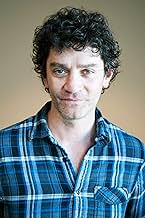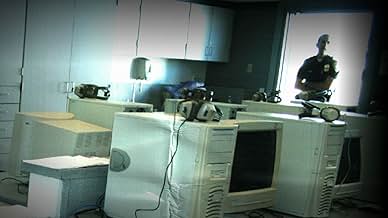Reviewing a documentary like this one becomes as much a review of the actual event as a commentary on the cinematic production. And since thoughts about this actual event are fraught with emotions on either side, or on many sides, the reviews I skimmed through seemed inclined to see this presentation of the events as being biased against whoever the reviewer felt was the "real" victim.
I'm gay and personally experienced the bullying & name calling from classmates (and lack of support from any adults who might be expected to provide guidance to young people) while I was in school in suburban Chicago many, many years ago. I would, therefore, be inclined to see Larry as the victim and Brandon as the bad guy, at least before getting into the facts of the case.
I think the documentary has done a laudable job showing that both children
and they were 14 and 15 year old children at the time
were victims of both parental & societal neglect, abandonment, abuse and mind boggling stupidity. Both lost their lives from preventable and curable problems. Larry quite literally was denied the opportunity to ever find out if "It Gets Better" and Brandon doesn't fare a whole lot better although he continues to live.
I applaud the emphasis that the documentary puts on the adults involved. It may take a village to raise a child, but the cabal of idiots involved in this case demonstrates the damage a "village" of adults can cause in the pathetic attempt to raise its children. The homophobic, bitter 7th grade teacher is as bad as the foolish 8th grade teacher who gave Larry a second–hand dress and treated him like a Barbie doll. Equally to blame were the school officials who were more interested in toeing the legal line than serving the interest of their students
including Larry and Brandon before the crisis and all the other children following the event.
The parents of the two boys and others who were meant to care for them were, for the most part, sadly inadequate. Apparently the care facility in which Larry ended up was a good place, but otherwise these two kids were left to deal with their own circumstances as well as with the drug addled failings of the adults in their lives, with no help. The prosecuting attorney seemed fairly level headed, although I don't really understand why Brandon was not allowed to be tried as a child. Possibly his outward appearance seemed more adult than his fragile personality would suggest. The defense attorneys seemed reasonable in their desire to have Brandon not tried as an adult, but the woman attorney who, at the end, kept announcing she loved Brandon and started crying, was acting in an irrational, far too emotional manner. Her interest in Brandon seemed anything but professional.
Certainly some of the jurors were totally incapable of making a valid judgment. Since there was no question about what Brandon had done, the only decision that needed to be made was what to do with him following the murder. Society had failed to protect him (or Larry) and now some inadequate representatives of that failed society were expected to decide what should happen next. If it weren't so sad, it would be funny. Had Brandon been raised in a reasonably normal family situation and developed into a self-assured, confident, loved young man, when Larry approached him while he was playing basketball with friends, Brandon could easily have laughed it off or even hugged Larry and turned it into a joke. But he saw it as one more attack on his personal dignity and from someone far less intimidating than his father.
Neither of these two children should have been made to feel so hated, to have developed such self-loathing and to have been abandoned to deal with life on their own.
Based on the letter that Brandon sent to the one teacher, maybe incarceration provided some protection for him and allowed him to develop into a more self-assured, sensible individual. It would be easy to argue that incarceration for 21 years was too little or too much. Was it meant to be punishment or as an attempt to provide a remedial environment?
It did save him from further abuse from his father (who died soon after the incident anyway) and the self-absorbed drug addicted mother, but that should have happened before he murdered Larry.
I think the documentary was quite well done. I know some people with limited attention spans may have found it slow moving at times, but that may have been appropriate since neither of these marginal children ever generated much in the way of speedy action from the local community and that lethargy & indifference extended even to the collateral damage inflicted on the other children in this story.




















